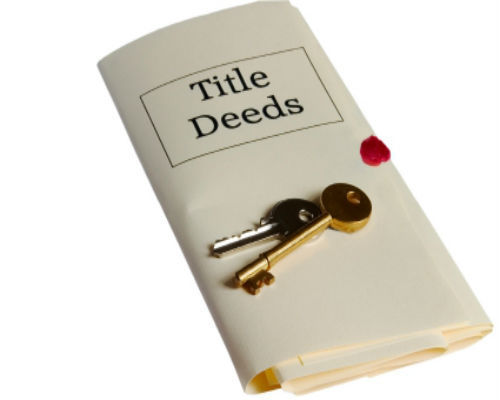
People looking towards purchasing a new property, which is “free from encumbrances”, may be puzzled to find certain restrictive covenants in the contractual documents, which necessitate a careful approach from their end. They could also find themselves at risk of becoming the owner of a land, which may be subjected to a variety of charges, rights, obligations or restrictions. This necessitates a proper research and understanding of the restrictive covenants in property deals which will help them make a safe and reliable real estate purchase.
Nature of Legal Covenants
It is important to understand the nature of legal covenants to get an insight into restrictive covenants before signing on the bottom line of the property deal. A “legal covenant” generally refers to a contractual understanding, agreement or written promise between two parties, which constitutes a pledge to perform a particular act or refrain from doing something which has been outlined in specific terms.
Some of the properties of legal covenants are:
- These contractual agreements are enforceable in the court of law.
- “Positive covenants” refer to those legally binding promises which lead to the performance of predefined actions.
- When the covenant prohibits the performance of a specific act or set of actions, then it is known as a “restrictive covenant”.
- The individual who undertakes or promises to perform a certain act is referred to as the “Covenanter”.
- The other party in the legal covenant, to who the promise is made, is called the “Covenantee”.
Restrictive Covenants in Property Deals
The restrictive covenants which are typically mentioned in the title deed are in the nature of legal obligations imposed on the purchaser of the property by the seller. Buyers are expected to adhere to these restrictive covenants, which require the performance or non performance of the mentioned acts.
Restrictions which “Run with the land”
As a buyer prepares for the transfer of real estate or land, he should watch out for certain covenants which are an integral part of the estate and are non-separable in the event of successive purchase or transfers. This typically means that as a successive owner of the property, the purchaser shall be subjected to the burdens or benefits enforceable by the restrictive covenants. In simple terms, these restrictions “run with the land” and are inherited by all successive owners.
Some Common Restrictive Covenants
Most residential sale agreements include certain common restrictive covenants and it is important to have awareness about the same, so that one has a clear understanding of his position as a buyer before going ahead with the purchase formalities.
- An owner of an apartment in a residential complex will be barred from storing any combustible, offensive, hazardous or obnoxious articles or substances, which may be injurious to the health and well being of the other inmates and occupants of the building.
- Residents will not be permitted to keep personal goods or possessions in common areas, parking lots, staircase, terrace and other pre defined areas.
- There may be certain restrictive covenants in regards to keeping pets, birds or other living animals in the apartment. Breeding animals for business purposes, trading or any other profit motive is restricted in most cases. Owners must also make sure that the pets do not create any nuisance or harm other occupants of the residential complex.
- Most buildings have restrictive covenants and underlying regulations for people desiring to pursue their profession or home based business from their apartments. In some instances residents may be totally barred from running any sort of profit center, clinic, in home store or office, for the convenience of other inmates.
- It is important to read the fine print in the title deed which may have certain clauses that relate to the payment of fees for utilizing amenities and common areas. Owners must also watch out for all costs of maintenance which would be eventually levied in their monthly bills.
Modification of Restrictive Covenants
On the behest of the property owners and occupants, the Homeowner’s Association in the residential complex may modify or repeal the restrictive covenants in accordance to the procedures and regulations outlined in its by-laws.
As covenants are legally enforceable, property owners may move a petition in a court of law for repealing or modifying the restrictive covenants. The verdict may lead to an amendment or striking out of the same from the title deed. However, in certain cases, the judge might decide to leave them unchanged and in their original form.
Before signing any contractual agreement with the real estate seller, it is important to conduct a detailed check of all the clauses of the title deed. It is also advisable to visit a real estate solicitor to review the deed and analyze all the covenants in entirety. Buyers should make an earnest effort to understand the wordings and contextual references of any existing covenants and check for their validity and legal nature, to avoid any legal hassles in future.